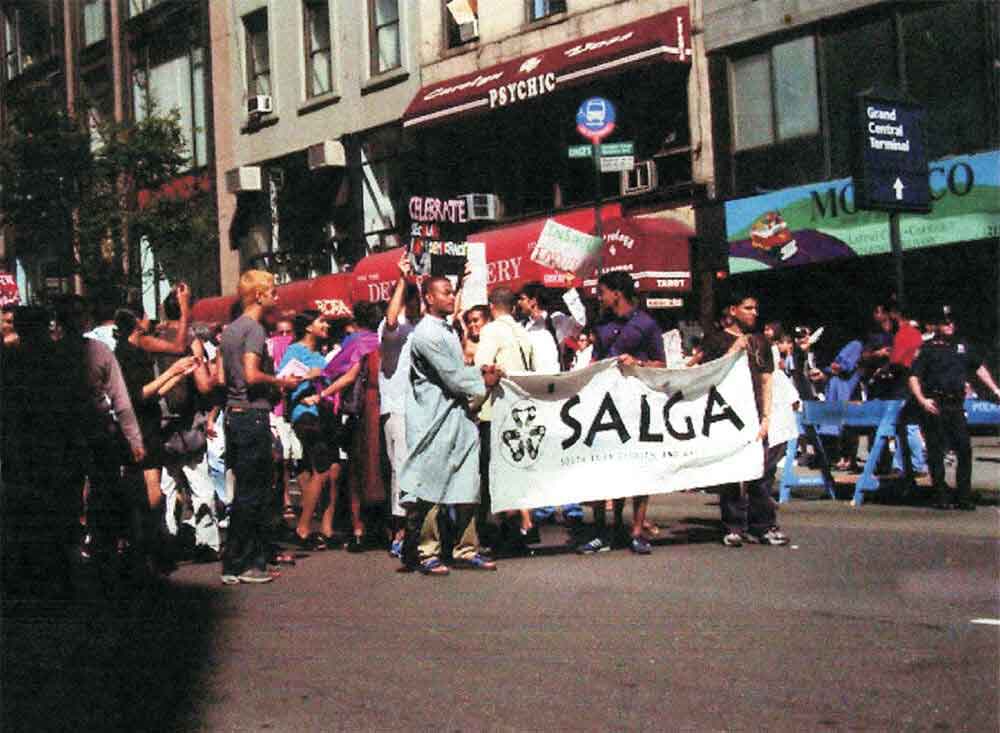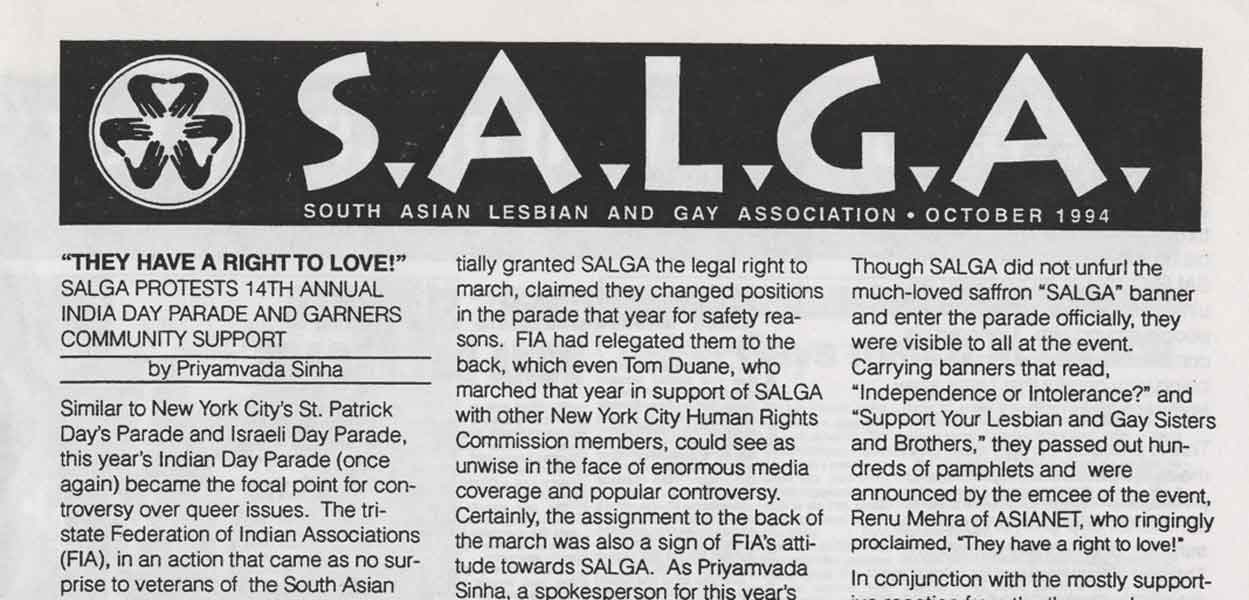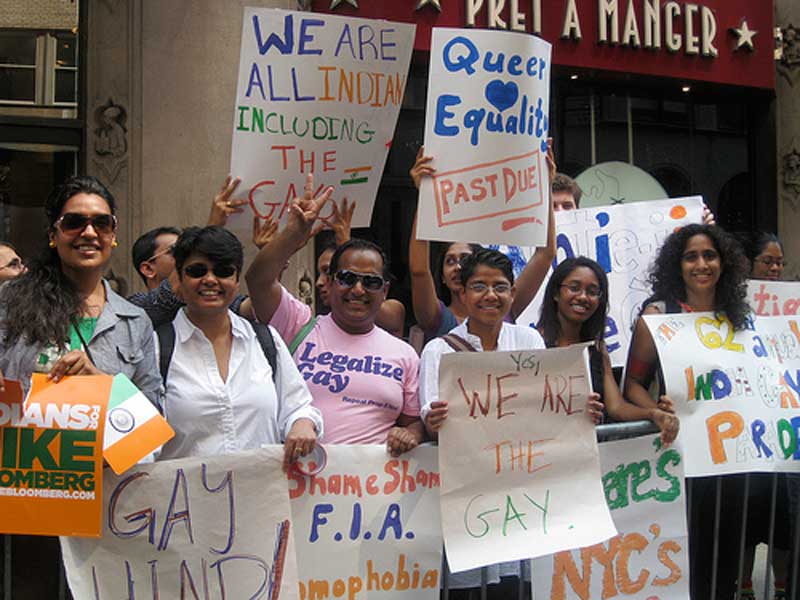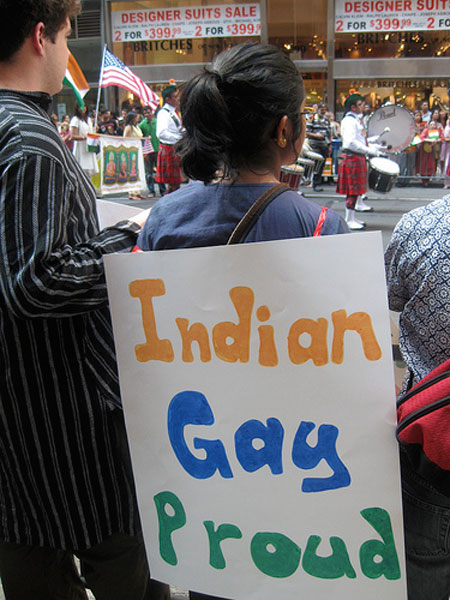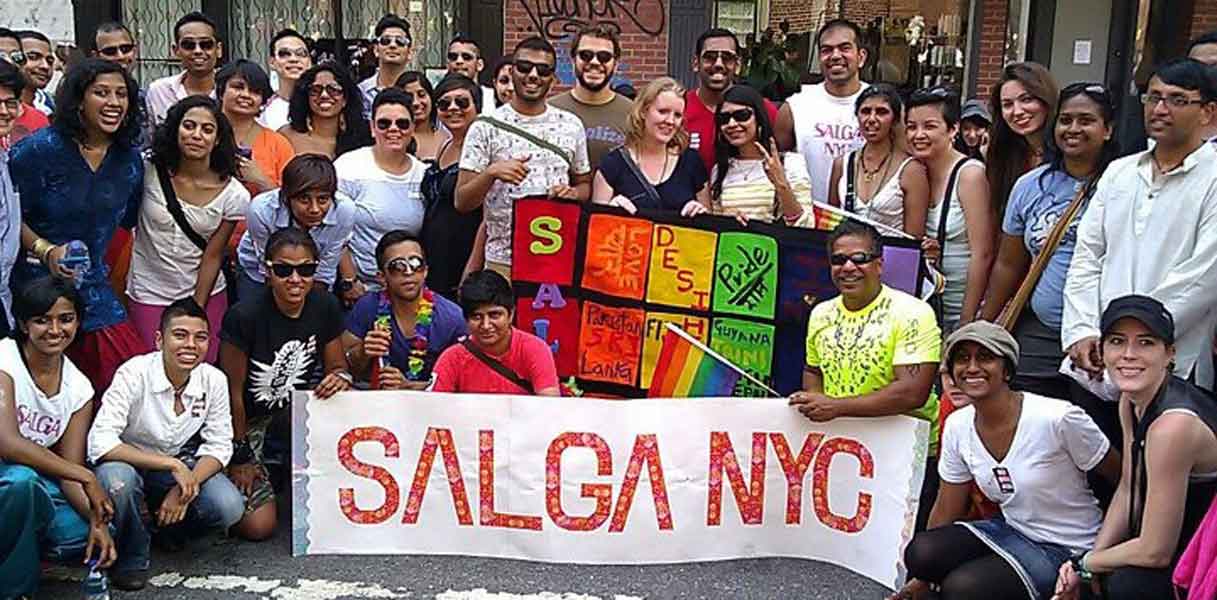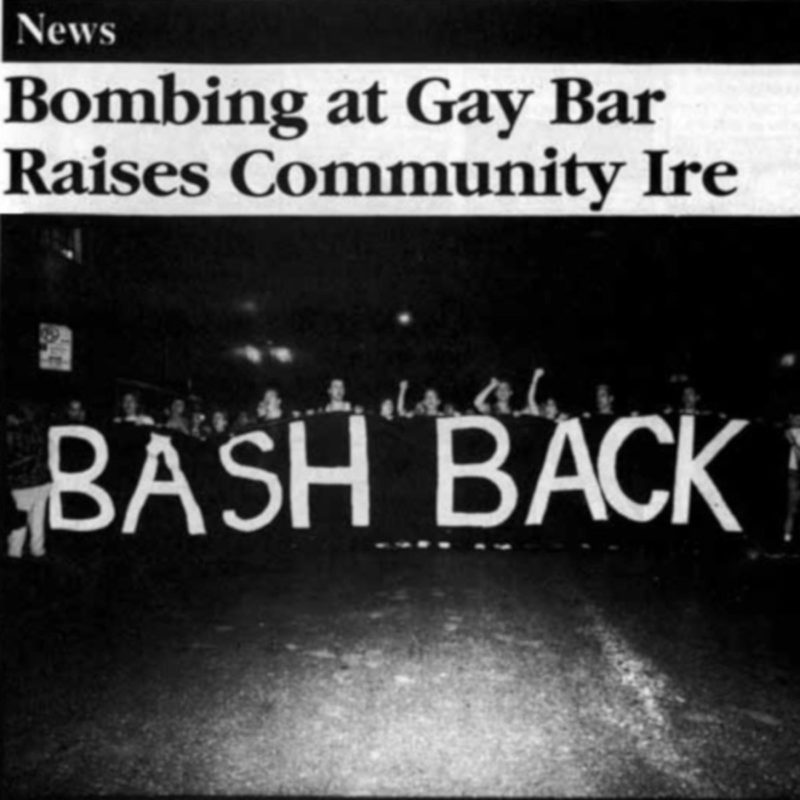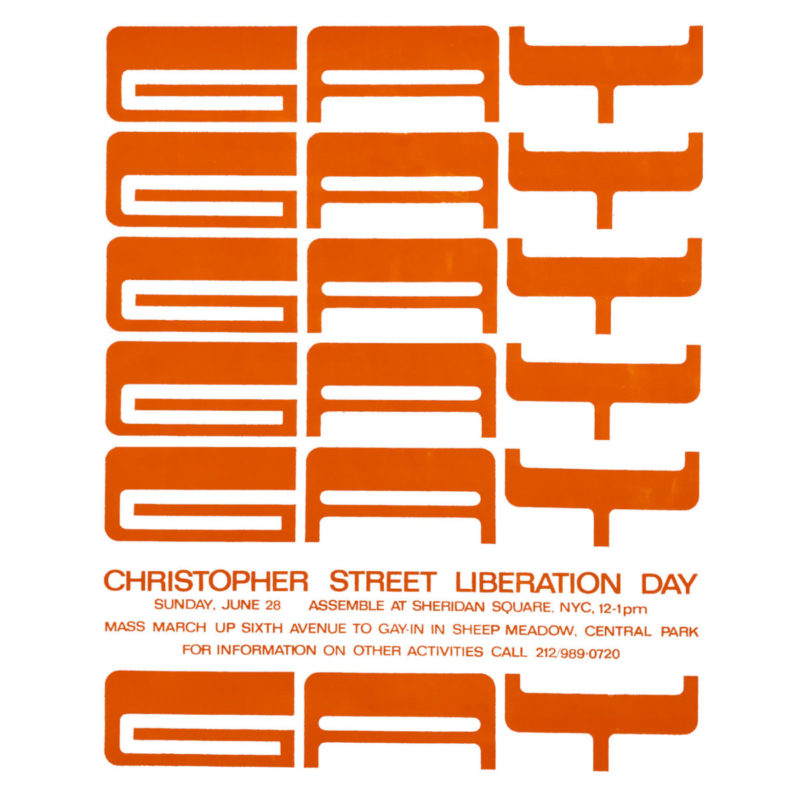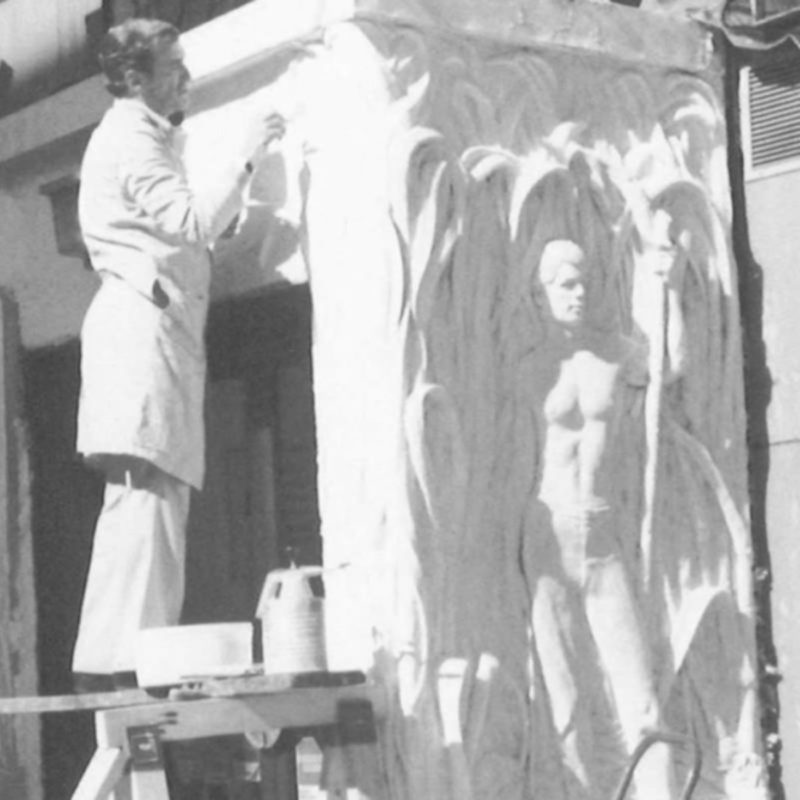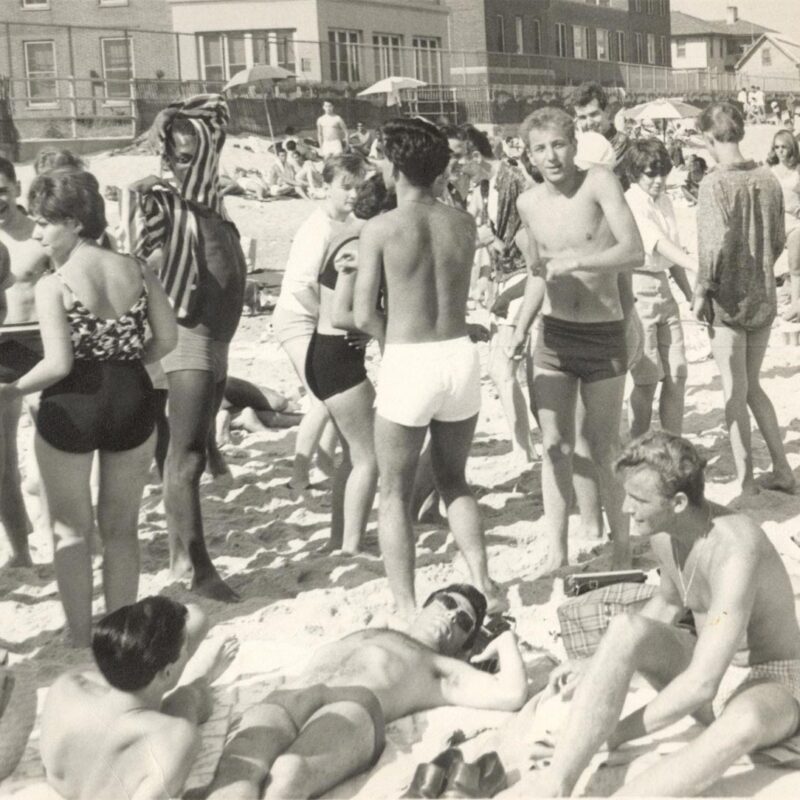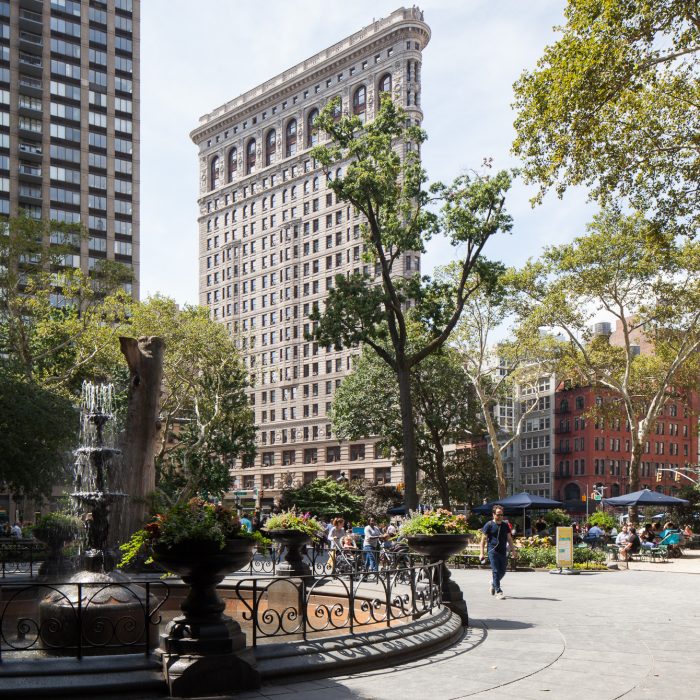
Desi Dhamaka Protests at Madison Square Park
overview
For several years in the 1990s, the South Asian Lesbian and Gay Association (SALGA) led “Desi Dhamaka” protests in Madison Square Park in response to being banned from participating in the annual India Day Parade.
SALGA and its allies also handed out flyers and provided information sessions for the Desi LGBT community in the park.
History
Originally known as the South Asian Gay Association (SAGA) when it formed in 1989, the volunteer-based organization was renamed the South Asian Lesbian and Gay Association (SALGA) two years later when several women joined. SALGA currently serves Desi LGBT people who trace their roots to countries such as Afghanistan, Bangladesh, Bhutan, Burma, India, Nepal, Pakistan, Sri Lanka, and Tibet, and those of South Asian descent from countries such as Guyana, Trinidad, and Kenya. The group has met at the LGBT Community Center since its founding.
Madison Square Park was an important gathering spot for SALGA to protest in the years when the group was banned by the Federation of Indian Associations (FIA) from marching in the India Day Parade, an annual event on Madison Avenue that has been organized by FIA since 1981. These protest gatherings were called “Desi Dhamaka” (a SALGA member said that “dhamaka” essentially means “blast” in Hindi). SALGA first marched in the parade in 1992 after the New York City Human Rights Commission intervened on its behalf. However, a year later, FIA stipulated that SALGA could only participate if its members did not carry signs that stated their homosexuality, which the group refused to do.
What’s really at issue here is homophobia and SALGA’s refusal to be treated as poor relations. We’ve come too far as South Asians, and as lesbians, bisexuals, and gay men to sit in the back of the bus in our own community.
For the rest of the 1990s, FIA denied SALGA permits to march in the parade for reasons that were not consistently applied to other groups who were allowed to march. In 1997, SALGA and its allies formed the South Asian Progressive Task Force to protest FIA’s homophobic actions. According to one member, the Task Force handed out flyers and held information sessions in Madison Square Park. Members also leafleted here during the Pakistan Day Parade, which was typically held the week after the India Day Parade.
Through lobbying, SALGA was finally able to march in 2000. However, the group would not be able to march again until 2010 and have fought for inclusion in subsequent years. SALGA continues to participate in the city’s Pride marches, including the New York City march and Queens Pride.
Entry by Amanda Davis, project manager (October 2017; last revised May 2023).
NOTE: Names above in bold indicate LGBT people.
Sources
“After Seven Years of Being Excluded, SALGA Participates in the India Day Parade,” SALGA Press Release, September 15, 2000.
Arun Venugopal, “South Asian LGBT Community Marches in India Day Parade,” WNYC News, August 16, 2010.
“History of SALGA,” SALGA-NYC, www.salganyc.org/history.
Minal Hajratwala, “Gays Shut Out of the Parade,” Colorlines, August 19, 2009.
Monisha Das Gupta, Unruly Immigrants: Rights, Activism, and Transnational South Asian Politics in the United States (Durham, NC: Duke University Press, 2006).
Priyamvada Sinha, “They Have a Right to Love!” SALGA Newsletter, South Asian American Digital Archive, October 1994. [source of pull quote]
Sharmila Rudrappa, Ethnic Routes to Becoming American: Indian Immigrants and the Cultures of Citizenship (New Brunswick, NJ: Rutgers University Press, 2004).
Sonia Shah, ed., Dragon Ladies: Asian American Feminists Breathe Fire (Boston: South End Press, 1997).
“Take a Stand Against Homophobia, Sexism, and Class Bias,” SALGA Flyer, South Asian American Digital Archive, 1997.
Read More
Do you have more information about this site?
This project is enriched by your participation! Do you have your own images of this site? Or a story to share? Would you like to suggest a different historic site?
